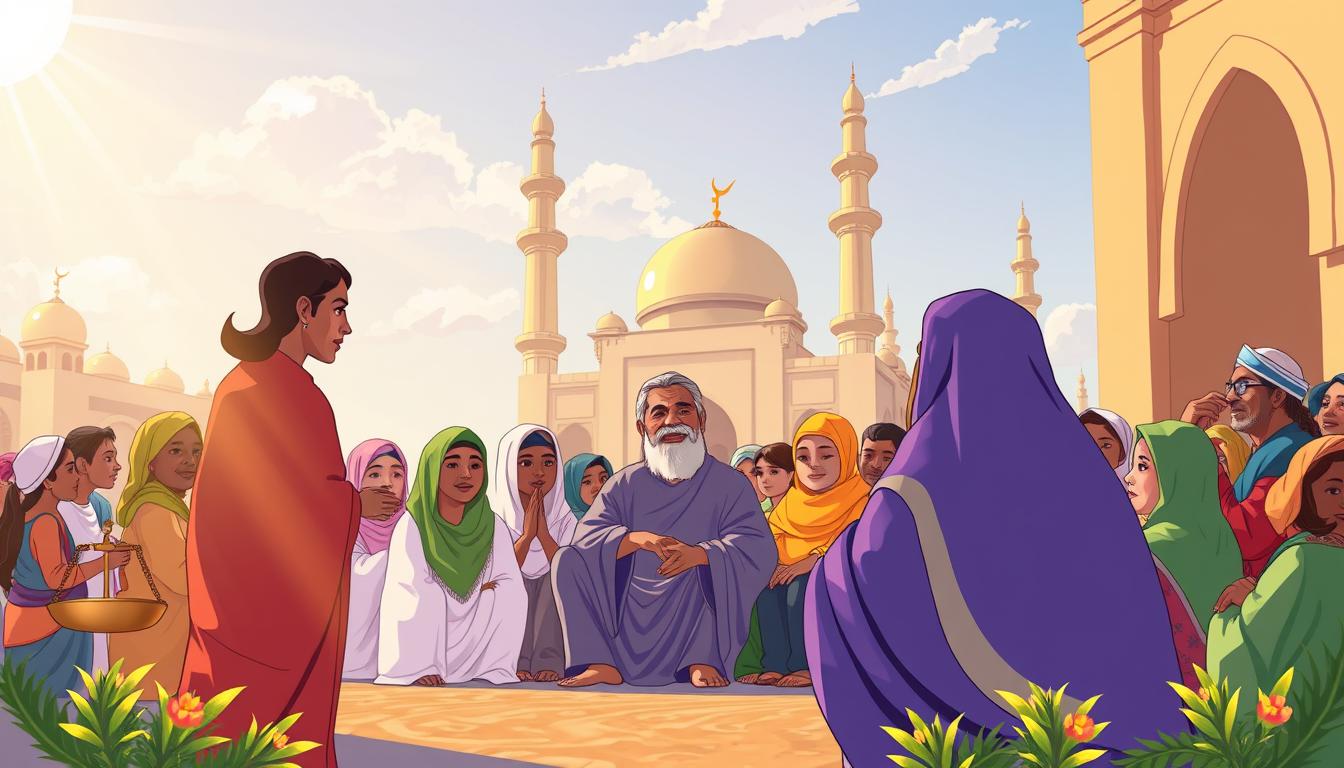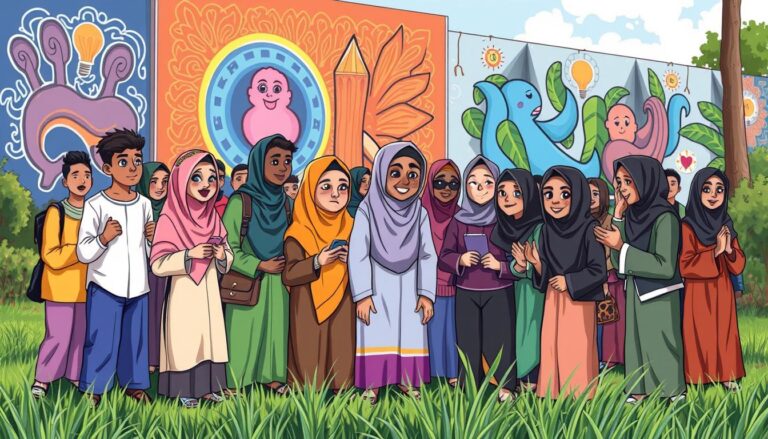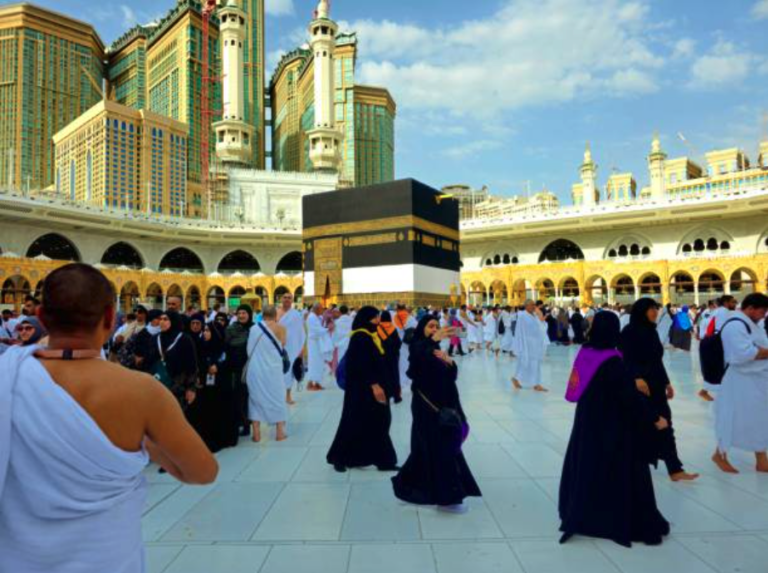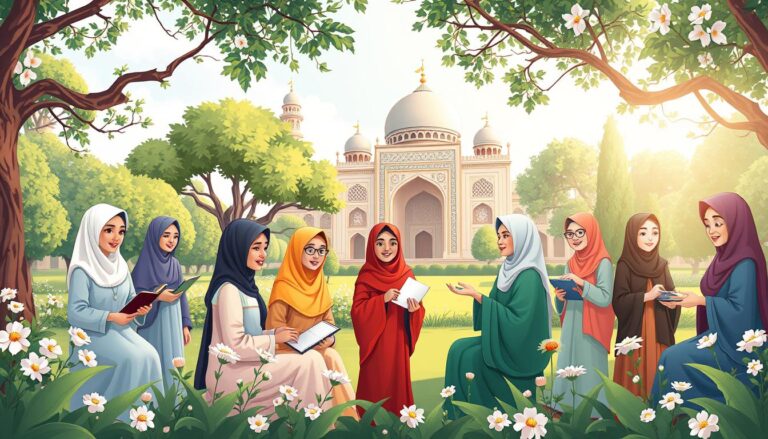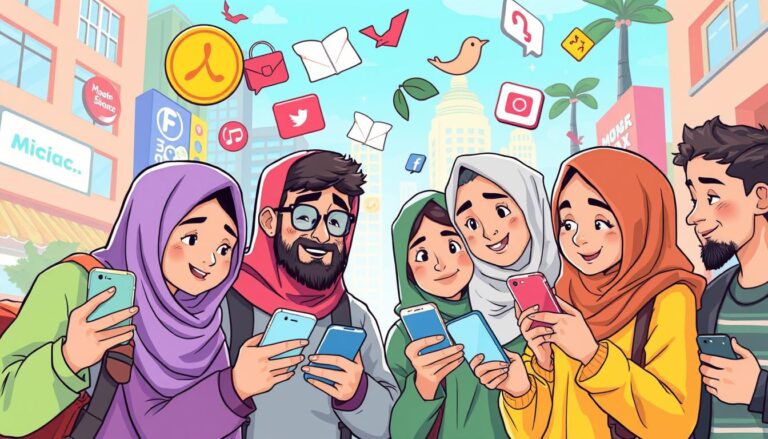Islam’s Role in Advocating Human Rights
Can a 1400-year-old faith be a champion for modern human rights? Islam, often misunderstood in the West, has a rich tradition of promoting human dignity and equality. From its inception, Islamic teachings have emphasized the sanctity of life, justice, and universal brotherhood.
The Quran, Islam’s holy book, lays the foundation for human rights with its principles of equality. It states, “O mankind, indeed We have created you from male and female and made you peoples and tribes that you may know one another” (49:13). This verse underscores the Islamic view of human equality, regardless of race or gender.
Prophet Muhammad’s emphasis on human dignity is evident in his farewell sermon. He declared, “All mankind is from Adam and Eve. An Arab has no superiority over a non-Arab, nor does a non-Arab have any superiority over an Arab; a white has no superiority over a black, nor does a black have any superiority over a white; none have superiority over another except by piety and good action.”
Islamic law, or Sharia, provides a comprehensive framework for protecting individual rights. It safeguards the right to life, property, and privacy. The Quran prohibits entering someone’s home without permission and condemns spying on others, emphasizing the importance of personal freedom.
Key Takeaways
- Islam promotes universal equality and justice
- The Quran emphasizes human dignity and brotherhood
- Islamic law protects individual rights and freedoms
- Prophet Muhammad stressed racial and ethnic equality
- Islam condemns unjust killing and protects the sanctity of life
- Sharia safeguards privacy and personal property rights
Understanding the Foundations of Human Rights in Islam
Islam’s view on human rights comes from its holy texts and teachings. The Quran’s message of equality and Prophet Muhammad’s guidance are key. They form the base of human rights in Islam.
Quranic Principles of Equality and Justice
The Quran teaches that everyone is equal and deserves respect. It says all humans are created the same. This idea is at the heart of Islam’s human rights.
Prophet Muhammad’s Teachings on Human Dignity
Prophet Muhammad’s teachings highlight the importance of human dignity. He taught that treating others with kindness and respect is crucial. His example guides Muslims in how to interact with others.
“The best among you are those who are best to people.” – Prophet Muhammad
The Concept of Universal Brotherhood in Islam
Islam teaches that we are all brothers and sisters, beyond race or ethnicity. This idea encourages unity and respect among all people. It helps Muslims see everyone as part of a global family.
- Right to life and security
- Freedom of belief and expression
- Equal protection under the law
- Right to education and knowledge
The Universal Islamic Declaration of Human Rights, made in 1981, strengthens these principles. It focuses on protecting minorities, workers’ rights, and economic fairness in Islamic societies.
The Historical Context of Human Rights in Islamic Civilization
Islamic civilization has a long history of human rights. For centuries, early Muslim societies valued equality, justice, and protected minorities. The Islamic Golden Age brought big steps forward in social welfare, education, and individual rights.
Muslims have made big contributions to human rights over time. The Cairo Declaration on Human Rights in Islam (CDHRI) and the Arab Charter on Human Rights (ACHR) have shaped human rights talks in the Arab world.
Human rights in Islamic civilization have grown over the years. The Universal Islamic Declaration of Human Rights (UIDHR) was created in 1981. But it didn’t cover all Muslim states. The CDHRI, however, bases its articles on Islamic law.
Today, Islam’s role in global human rights is big:
- 25% of the world’s population is Muslim
- Islam is the second-largest religion globally
- 49 countries have Muslim majority populations
- Significant Muslim minorities exist in India, China, and European nations
Muslim states have played a key role in UN human rights documents. Despite challenges, the ongoing talks show human rights in Islamic civilization are evolving.
Islam’s Role in Advocating Human Rights
Islam is key in shaping human rights views in Muslim-majority countries. It teaches the importance of life and ethical behavior.
Islamic Teachings on the Sanctity of Life
In Islam, saving human life is a top priority. The Quran says saving one life is like saving all of humanity. This shows how much value is placed on life.
Protection of Property Rights in Islam
Islamic law protects property rights well. It bans theft and taking others’ things unfairly. This supports economic stability and security for everyone.
Freedom of Religion in Islamic Tradition
The Quran says there’s no force in choosing a religion. This supports religious freedom and personal faith choices. However, different views exist among scholars and communities.
“Over the last decades, there’s been a rising demand in several countries for the implementation of Sharia principles as the official law of the state.”
Islam lays a solid base for human rights. Yet, blending traditional Islamic law with modern human rights is a challenge. Debates on gender equality and minority rights are ongoing in the Islamic world.
Women’s Rights in Islam: Challenging Misconceptions
The Islamic view on women’s rights is often misunderstood. Many think Islam treats women poorly, but this is not true. In fact, Islam gave women rights to education, own property, and get a divorce long before others did.
Gender equality in Islam is based on the Quran. This holy book teaches that all humans are equal, no matter their gender. For instance, Qur’an 49:13 says the most noble are the most righteous, not just one gender.
Islamic law sees women as legal persons. They can make contracts, inherit, run businesses, choose husbands, and get dowers. These rights were groundbreaking when they were first introduced, especially for women’s status before Islam.
“Islam ushered in reforms that provided women with rights, dignity, honor, and status, ensuring gender equality in various areas of life.”
Today, groups like Musawah study the Quran and Islamic law. They work to promote women’s rights within Islam, challenging old views shaped by men’s dominance.
It’s important to remember that opinions on women’s rights in Islam vary. Some Muslim scholars push for full gender equality based on Islamic teachings. Others see things more conservatively. This shows the ongoing debate in the Muslim world about women’s roles and rights.
Islamic Perspectives on Racial Equality and Non-Discrimination
Islam is very clear about racial equality. It teaches us to live in harmony with everyone, no matter their race. This belief is at the heart of Islam and has been followed for centuries.
Quranic Teachings on Racial Harmony
The Quran teaches that all humans are equal. It says we all come from the same place and are judged by our actions, not our race. This shows that Islam does not believe in discrimination based on race.
Historical Examples of Inclusivity
Islamic history is full of examples of inclusivity. Bilal ibn Rabah, a black companion of Prophet Muhammad, is one such example. His role as the first muezzin shows that the early Muslim community did not discriminate based on race.
Modern Scholars on Combating Racism
Today, Muslim scholars still fight against racism. They use Islamic teachings to speak out for equality and justice. They look to both the Quran and history to fight against discrimination.
“In Islam, there is no room for racial superiority. We are all equal in the eyes of Allah, distinguished only by our deeds and character.”
Recently, there’s been more focus on fighting Islamophobia as a form of racism. A 2022 article in the University of Cincinnati Law Review talked about how Islam is seen as a race in North America and Europe. This shows we still need to work on understanding and fighting racial discrimination.
The Right to Education and Knowledge in Islamic Teachings
In Islam, seeking knowledge is seen as a key duty. The Quran’s first message, “Read,” highlights learning’s importance. This command laid the groundwork for a long history of scholarship in Muslim communities.
Islam grants the right to knowledge to both men and women. Prophet Muhammad taught that all Muslims should seek education. This message encouraged a culture of learning that ignored gender differences.
Islamic history is filled with learning centers. Libraries, universities, and scholarly institutions were key to Muslim civilization. They helped preserve and grow knowledge in many fields.
“The ink of the scholar is more sacred than the blood of the martyr.” – Prophet Muhammad
Today, Muslim-majority countries struggle to ensure everyone has access to education. Literacy rates and educational levels, especially for women and girls, are concerns in some places.
- Literacy rates in some Muslim-majority countries lag behind global averages
- Gender disparities in education persist in certain Islamic societies
- Efforts to improve educational access align with Islamic principles
To tackle these issues, we need to focus more on education in Islam. By embracing the right to knowledge, Muslim communities can build more inclusive and effective schools.
Islamic Approach to Social Justice and Economic Rights
Islam values social justice and economic rights a lot. It has a detailed plan for fairness and equality in society. This plan is based on Islamic finance and aims for a balanced economy.
Zakat: A Tool for Wealth Redistribution
Zakat is key to Islamic social justice. It’s a mandatory gift where Muslims give 2.5% of their wealth to the needy. It helps even out wealth, reducing the gap between the rich and the poor.
Fair Trade and Ethical Business Practices
Islam teaches fair trade and ethical business. The Quran and Hadith guide us on honest and fair dealings. These rules help make a market where everyone gets a fair deal.
Prohibition of Usury in Islamic Economics
Islam bans usury (riba) in economics. This ban stops economic exploitation and promotes fair lending. Islamic banks offer interest-free banking to follow this rule.
The Islamic way of handling social justice and economic rights is at the heart of Islamic economics. Though it’s applied differently in Muslim countries, these principles guide financial and social policies in many places.
“The best charity is that given to a relative who does not like you.” – Prophet Muhammad
Freedom of Expression and Its Limits in Islamic Thought
The Islamic view on freedom of expression comes from the Quran and Prophet Muhammad’s teachings. The Quran promotes open discussions and debates. It allows people to accept or reject ideas freely. In fact, 93% of the Quran supports religious freedom and opposes forcing beliefs.
However, Islam’s stance on free speech is not without limits. Debates often arise, especially about blasphemy and criticizing religious beliefs. This balance is seen in the Cairo Declaration of Human Rights in Islam, adopted in 2000 by the Organization of Islamic Conference.
“Freedom of expression is allowed as long as it aligns with Sharia law principles.” – Article 22, Cairo Declaration
Early Muslims faced persecution, with 58% of Quranic references mentioning these times. This shaped their views on free expression. Only 5% of the Quran talks about responding aggressively to insults, promoting forgiveness instead.
Today, interpretations vary widely. Liberal Muslims approach traditional texts with caution, with 70% questioning certain Hadith collections. Islamic modernists like Sayyid Ahmad Khan have pushed for religious freedom since the 19th century. Muslim-majority countries have different laws and practices on freedom of expression, showing ongoing debates within Islamic thought.
Islamic Contributions to International Human Rights Frameworks
The Muslim world has been key in shaping global human rights talks. In 1948, Muslim leaders were part of the United Nations’ Universal Declaration of Human Rights (UDHR) adoption. This showed how Islamic values influenced human rights worldwide.
In 1990, the Organization of Islamic Cooperation (OIC) created the Cairo Declaration on Human Rights in Islam. This document aimed to define human rights through an Islamic lens. However, it was criticized for not meeting international standards. It highlighted the importance of protecting life, honor, family, and property, but also mentioned Sharia law, sparking debates about its global acceptability.
In 2020, the OIC was set to approve the OIC Declaration on Human Rights (ODHR). This document was meant to link Islamic principles with international human rights laws. Muslim contributions to human rights are still evolving, showing a continuous effort to merge Islamic teachings with global standards.
Today, Muslim scholars and activists are tackling the challenge of aligning Islamic law with modern human rights. This ongoing effort highlights the dynamic role of Islamic contributions in global human rights discussions.
Source Links
- Human Rights in Islam
- Human Rights in Islam8 min read
- Islam and human rights | Islamic World Class Notes | Fiveable
- Islam and Human Rights
- University of Minnesota Human Rights Library
- exemplary
- Human Rights from an Islamic Perspective: A Critical Review of Arabic Peer-Reviewed Articles
- Islam and Human Rights: A 50 Year Retrospective
- Human Right Centre – Università di Padova | Files :: Islam and Human Rights
- Human rights and islamic legal reform
- Five things you need to know about women in Islam: Implications for advancing women’s rights in the Middle East
- The Rights of Women in Islam and Some Misconceptions An Analysis from Bangladesh Perspective
- Women in Islamic Law: Examining Five Prevalent Myths | Yaqeen Institute for Islamic Research
- Racecraft and Identity in the Emergence of Islam as a Race
- Muslim Modernism, Islamic Law, and the Universality of Human Rights
- “Islam and Educational Equality for Muslim Women”
- Islamic Principles on Education and Serving Humanity
- HUMAN RIGHTS IN ISLAM
- A Sacred Duty: Islam and Social Justice | Yaqeen Institute for Islamic Research
- Islamic Perspectives on Social Justice – GlobalSadaqah.com Blog
- Contradictions and Consistencies: Human Rights in the Universal Declaration and Islamic Teachings Amidst Global Conflicts
- Why Free Speech is a Liberal Myth… But Muslims Should Play Along
- Freedom of Expression and the Violation of the "Sacred": a Muslim Perspective
- Freedom of Expression from the Islamic Perspective
- The Organization of Islamic Cooperation’s declaration on human rights: Promises and pitfalls
- Islamic Law, International Relations, and Human Rights: Challenge and Response
- Islam and human rights: Clash or compatibility?

